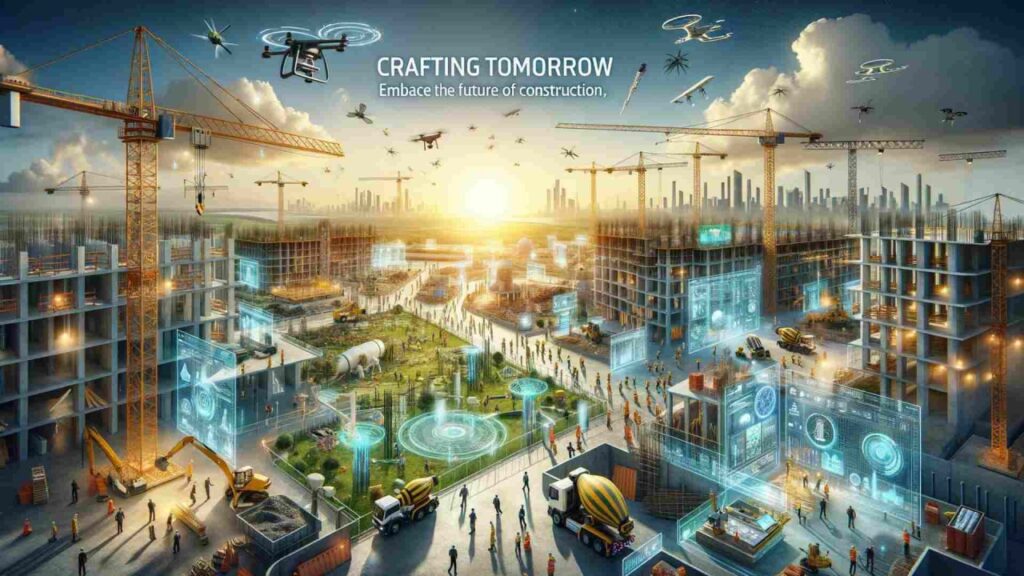As we stand on the cusp of a new era, the construction industry is poised for transformative change. From advancements in technology to evolving societal needs, the next decade promises to usher in a wave of innovation and progress. Let’s explore the key trends and predictions shaping the future of construction.
1. Sustainability Takes Center Stage
In the coming years, sustainability will be more than just a buzzword – it will be a driving force behind construction practices. With a growing emphasis on environmental conservation and energy efficiency, green building initiatives will become the norm rather than the exception. From carbon-neutral materials to net-zero energy buildings, sustainability will be deeply integrated into every aspect of construction projects.
2. Rise of Modular Construction
Modular construction, characterized by off-site fabrication of building components, will gain momentum as developers seek faster and more cost-effective building solutions. Prefabricated modules can be assembled with precision, reducing construction timelines and minimizing waste. This approach not only enhances efficiency but also allows for greater flexibility in design and customization.
3. Embrace of Digital Technologies
The construction industry will embrace digital technologies at an unprecedented pace, revolutionizing project management, design, and construction processes. Building Information Modeling (BIM) will become ubiquitous, enabling stakeholders to collaborate seamlessly and visualize projects in virtual environments. Drones, augmented reality, and 3D printing will also play pivotal roles in enhancing productivity and safety on construction sites.
4. Shift Towards Smart Infrastructure
As cities become increasingly interconnected, the demand for smart infrastructure will soar. From smart buildings equipped with IoT sensors to intelligent transportation systems, technology will optimize the way we design, construct, and maintain our urban environments. Smart infrastructure not only enhances efficiency but also improves quality of life for residents by promoting sustainability and resilience.
5. Integration of Artificial Intelligence
Artificial Intelligence (AI) will revolutionize decision-making processes in construction, from project planning to risk management. AI-powered algorithms can analyze vast amounts of data to identify patterns, predict outcomes, and optimize resource allocation. This predictive analytics capability will enable construction companies to mitigate risks, reduce costs, and improve project outcomes.
6. Focus on Resilient Design
In an era of increasing climate volatility, resilient design will become paramount in construction projects. From extreme weather events to rising sea levels, buildings and infrastructure must be designed to withstand and adapt to changing environmental conditions. Resilient design principles will encompass everything from flood-resistant foundations to drought-tolerant landscaping, ensuring that our built environment remains resilient in the face of adversity.
7. Embrace of Circular Economy Principles
The construction industry will embrace the principles of the circular economy, shifting away from the linear ‘take-make-dispose’ model towards a more sustainable approach. Materials will be sourced responsibly, and efforts will be made to minimize waste through reuse, recycling, and repurposing. This shift towards a circular economy will not only reduce environmental impact but also create new opportunities for innovation and economic growth.
In conclusion, the future of construction holds immense promise and potential. By embracing sustainability, digitalization, and innovation, we can build a world that is not only safer and more efficient but also more resilient and sustainable for generations to come. The next decade will undoubtedly be an exciting journey as we work towards building a brighter future together.

